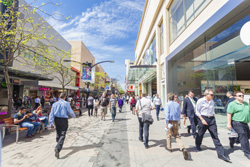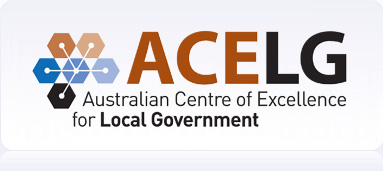Overview
 In order to build social cohesion effectively, activities need a local focus. They should be tailored to the specific needs of the community and should involve partnerships between multiple stakeholders. This means local governments should:
In order to build social cohesion effectively, activities need a local focus. They should be tailored to the specific needs of the community and should involve partnerships between multiple stakeholders. This means local governments should:
- Build the capacity of the community
- Be proactive and responsive
- Be targeted
- Promote participation for all in local democracy
- Engage young people
- Support bystander action
- Develop media and communications.
| Example: Australian Multicultural Council – Research on strengthening social cohesion |
In 2013, the Australian Multicultural Council consulted with stakeholders in thirteen jurisdictions across metropolitan and rural locations in South Australia, Western Australia, Victoria, NSW and Queensland to observe and understand social cohesion efforts at the local level. The key finding was that 'social cohesion efforts in Australia could be described as program rich, but policy and coordination poor'.
On the basis of the study, the Council recommended that future opportunities to strengthen social cohesion should include a focus on:
- Supporting community capabilities through strengthening and empowering local coordination and leadership, developing community engagement and protocols for rapid and coordinated action
- Engaging young people
- Developing community structures, including a more strategic approach to research and evaluation and opportunities to develop a more coordinated approach to funding through a proposed national social cohesion framework
- Fostering a sense of belonging and trust within and between communities through targeting at-risk communities, developing a strategic approach to interfaith and intercultural dialogue and building shared spaces and communities of practice.
Source: Australian Multicultural Council (2013). The Australian Community: The Australian Multicultural Council's report on multiculturalism and social cohesion in Australian neighbourhoods.

 When members of the community work with local government they volunteer their time with the expectation they will be recognised for their contribution. They are generally motivated by the aspiration of making where they live a better place. Therefore, it is important for communities to understand they are valued partners and that local government will listen to them.
When members of the community work with local government they volunteer their time with the expectation they will be recognised for their contribution. They are generally motivated by the aspiration of making where they live a better place. Therefore, it is important for communities to understand they are valued partners and that local government will listen to them. Changing patterns of migration and settlement are creating increasingly diverse communities. In order to be effective, local governments need to design targeted programs tailored to the specific needs and conditions of their communities. This means:
Changing patterns of migration and settlement are creating increasingly diverse communities. In order to be effective, local governments need to design targeted programs tailored to the specific needs and conditions of their communities. This means: As communities become more diverse, forums of civic engagement and leadership need to reflect their communities in order to effectively represent them. In some areas this may be a long-term goal as newly arrived groups may have a range of other priorities and may not have the
As communities become more diverse, forums of civic engagement and leadership need to reflect their communities in order to effectively represent them. In some areas this may be a long-term goal as newly arrived groups may have a range of other priorities and may not have the  It is important for all young people to feel connected to their community whether they are:
It is important for all young people to feel connected to their community whether they are: Whilst most people would say that racism is unacceptable, many do not take action when they see it.
Whilst most people would say that racism is unacceptable, many do not take action when they see it. As part of the Get Up. Speak Out campaign Council used a number of communications methods/messages including:
As part of the Get Up. Speak Out campaign Council used a number of communications methods/messages including:

